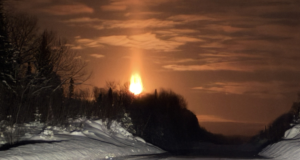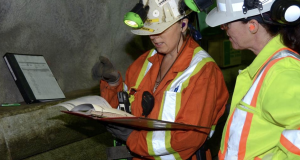 For most Ontarians, the concept of federalism is something that seldom crosses our minds.
For most Ontarians, the concept of federalism is something that seldom crosses our minds.
Students in school might engage with the concept during their social studies or civics lessons. Someone with an interest in current events might come across references to the interaction of different levels of government when reading the news.
Most often, I’d wager, we hear about federalism and jurisdiction when politicians are looking to pass blame away from them and onto a different government.
Former Prime Minister Jean Chretien once commented on this fact when he received criticism on a budget, saying: “If you’re a mayor and you have a problem, what do you do? You blame the provincial government. And when you’re the provincial government, and you have a problem, what do you do? You blame the federal government. And for us, we cannot blame the Queen anymore, so we blame the Americans once in a while.”
I’ve seen this play out at Queen’s Park quite a bit in recent months. If anyone were to tune in to Question Period at the legislature, of late, they will, without fail, see a government backbencher direct a question to one of the cabinet ministers on the carbon tax. In fact, it has been almost exclusively the only issue they’ve raised during question period for close to 5 months.
Without fail, these pre-scripted questions will begin with the Conservative backbencher describing how the “federal carbon tax” impacts Ontario, and the government minister will respond with a call for the prime minister to “scrap the tax.”
When this trend began in November of this year, I wrote a column about how Ontarians deserve action over these attempts at deflection. The Supreme Court of Canada decided that the implementation of a price on carbon is a matter the federal government can undertake and that the provinces must abide by the law. In other words, the only thing that will change this policy is a change in the Canadian government from a federal election.
However, what I also pointed out in that column is a fact that is always ignored by the Progressive Conservatives when they lambast the price on pollution. Ontario has enacted and collects its own levy on greenhouse gas emissions called the Emissions Performance Standard (EPS). This program was set up by the Doug Ford government in 2022 and requires emitting industries to pay a price per tonne on their emissions that exceed the set limit.
In most ways, it mirrors the federal government’s own program. The main difference between the two is that the federal program remits the collected money as a dividend, whereas the provincial program takes the collected fees directly into the provincial coffers.
When challenged on the fact that the PCs have introduced their own carbon tax by a different name, Premier Ford will excuse it by saying he is forced to do so by federal legislation and the Supreme Court ruling.
This is a half-truth and a deflection to avoid addressing the obvious hypocrisy of the situation.
Previously Ontario had a different system that provided a market-based solution to emissions, called the Cap-and-Trade program. This set up an economy where carbon credits were issued by Ontario, Quebec, and California that industries could buy and sell. A polluting business could emit up to the regulatory threshold. Then it would have to buy carbon credits for any exceeding emissions. If they came in under their threshold and owned credits, they could sell them to other eligible businesses who needed them.
While there are valid critiques of the cap-and-trade system, I bring it up to point out that the premier was not forced to adopt the current EPS program. Both a cap-and-trade system and a direct levy system would exempt Ontario from that portion of the federal backstop provision.
Rather, the premier chose it as his government’s preferred policy. A policy that brings in millions of dollars to the province year after year.
Currently, the EPS charges polluting industries $80 per tonne of carbon they emit over the provincial limit. This will rise to $95 per tonne next year, and the province says it will reach $170 a tonne by 2031. In its first year, the program brought in $146 million in revenue for the Ontario government. With the threshold for emissions expected to lower and the price per tonne going up, it will continue to bring in more money each year.
When the government was questioned on how it planned to use the funds raised by the levy in January of 2023, there was little information. The Ministry of Environment, Conservation and Parks said that they were “developing an approach for how to use the proceeds collected under the program,” according to a CBC article at the time. More recently, in a March article by the Toronto Star, the minister said that the government is giving the proceeds back to industry to use on “technological upgrades” to reduce their emissions.
However, the actual use of these funds has not been made explicitly clear. This, I am sure, is in no small part because the Ford government knows how embarrassing it would be for them to admit they have a very similar carbon pricing program to the one they spend every day railing against. I imagine that many Northerners would agree with me that there are many great uses for those millions of dollars, such as helping to make their own homes more energy efficient reducing their monthly energy bills. Or, as a recent report called “Pathway Out of Energy Poverty in Northern Ontario” called for, using the money to create a turnkey program to transition low-income people off inefficient heat sources such as wood or oil.
I hope readers can understand why the grandstanding about the “federal carbon tax” by the Ford government rings hollow to me. Clearly, they are willing to levy money from companies that pollute and then use that money to achieve their objectives. The only reason it is bad when the federal government does it, as far as Ford is concerned, is because it is politically expedient to condemn someone else than to stand by his own record.
Playing the blame game and obfuscating the truth lowers the level of discourse in our country and does a disservice to Ontarians who want nothing more than a government that is honest and acting in their best interests. There is no shortage of actions that the Ford government could take on areas that are within their direct jurisdiction. Housing, healthcare, education, and long-term care… these are all massive files that are explicitly under the purview of the province in our constitution.
Understanding that there are serious failures on the part of the federal government is good, and people should be aware and active on those issues. However, we must draw the line at buying into the rhetoric of an Ontario government that squanders the opportunity to do something about the files they were elected to manage and instead chooses to play the blame game.
I will leave readers this week with one more quote on federalism from political humourist W. Hugh Arscott: “Canada is divided by great mountains, great prairies, Great Lakes, and eleven governments that really grate.”
As always, I invite you to contact my office about these issues or any other provincial matters. You can reach my constituency office by email at [email protected] or call Toll-free 1-800-831-1899.
- MPP Michael Mantha Raises Concerns about Changes to NOHFC - January 27, 2025
- A Good Idea is a Good Idea –No Matter Where it Comes From - January 27, 2025
- Ford doit écouter, même si le message vient de l’autre côté de l’allée, et rendre nos routes plus sûres - January 27, 2025
 Wawa-news.com Local and Regional News
Wawa-news.com Local and Regional News


